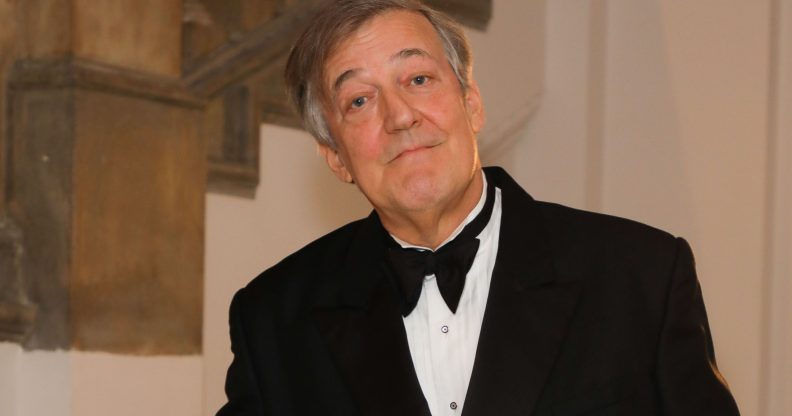Stephen Fry said he ‘hated the gay scene’ when he first moved to London because it made him feel ‘undesirable’

Stephen Fry attends The Royal Academy Schools annual dinner and auction at Royal Academy of Arts, 2020. (David M. Benett/Dave Benett/Getty)
Stephen Fry has revealed that he “hated the gay scene” when he moved to London in the eighties, adding that he felt “undesirable”.
Fry, 62, spoke about his introduction to the London gay scene as a young and “lonely” gay man on the award-winning Homo Sapiens podcast, hosted by Alan Cumming and Chris Sweeney, which has just begun its fourth season.
The gay icon said he arrived in the capital in 1981, and recalled: “I always hated what was called ‘the scene’ when I arrived in London – I arrived in London at a bad time for any gay person to arrive… it was exactly the same time as the HIV virus, not that we knew there was a virus involved in those early days.
“I remember hearing about GRID – gay related immune deficiency – and bathhouse flu and all kinds of other strange words.”
Stephen Fry felt that he was “as far from cute as it is possible to be”.
Stephen Fry described how he would go with his “friend, and lover, at the time” to Heaven and other gay clubs, as well as The Queen’s Head pub in Chelsea.
“I didn’t mind the pub because it was full of cosy old people who sat and chatted,” he said. “But Heaven… the look that you get, up and down, sweeping eyes as you walk into a club. And in my case, the look up and down and quick turn away.
“I felt like such an undesirable person, I’m as far from cute as it is possible to be. Also, I just don’t like dance places, I just like talking.”
He also said that while he was unhappy at that time, he did not begin “examining his mind” until the mid-1990s when he walked out on the West End play Cell Mates, struggling with his mental health.
Fry said: “This was when I had to start examining my mind and what was going on with me and why it was going wrong and why I was unhappy when I was at the top of the game that I had set myself.
“I had achieved things I never dreamed I would – everything should have been wonderful, every light was green and yet I was in such a state of terrible misery and distress… I think [during that time] I realised one of the things I was unhappy about was that I was lonely, I really was.”

